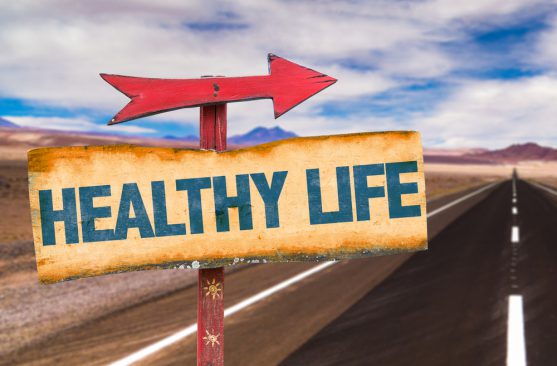In recent years, the relationship between social media use and anxiety has garnered significant attention from researchers, mental health professionals, and the general public. As social media platforms become increasingly integrated into daily life, understanding their effects on mental health, particularly anxiety levels, is crucial. This article explores the multifaceted impact of social media on anxiety, drawing from various studies and perspectives.
Understanding Anxiety in the Context of Social Media
Anxiety disorders are among the most common mental health issues worldwide. They can manifest in various forms, including generalized anxiety disorder (GAD), social anxiety disorder (SAD), and panic disorder. With the rise of social media, new avenues for social interaction have emerged, leading to both positive and negative consequences for mental health.
Social media platforms like Facebook, Instagram, Twitter, and TikTok enable users to connect with friends and share experiences. However, they also create environments ripe for comparison, validation-seeking behavior, and exposure to curated images that may not reflect reality. This duality raises questions about how social media influences anxiety levels among users.
Positive Effects of Social Media on Anxiety
Despite the concerns surrounding social media use, there are several positive aspects that can contribute to reduced anxiety levels:
Social Connectivity
ocial media allows individuals to maintain connections with friends and family, fostering a sense of belonging. For many, especially those who may feel isolated in their physical environments, these online interactions can provide emotional support and reduce feelings of loneliness.
Escapism:
Engaging with content on social media can serve as a distraction from real-life stressors. Users often turn to their feeds for entertainment or to escape from daily pressures, which can temporarily alleviate anxiety.
Access to Resources
Social media platforms can serve as valuable resources for mental health information. Many organizations and individuals share coping strategies, personal stories, and professional advice that can help users manage their anxiety more effectively.
Negative Effects of Social Media on Anxiety
Conversely, numerous studies have highlighted the detrimental effects of social media on anxiety levels:
Comparison Culture:
One of the most significant contributors to increased anxiety is the tendency for users to compare themselves to others. Exposure to idealized images and lifestyles can lead to feelings of inadequacy and low self-esteem. This phenomenon is particularly pronounced among adolescents and young adults who are still developing their identities.
Fear of Missing Out (FOMO)
he fear of missing out is a pervasive issue in the age of social media. Users often feel anxious when they see others participating in activities or events they were not invited to or could not attend. This feeling can exacerbate existing anxiety and lead to a cycle of compulsive checking of social media feeds.
Cyberbullying
The anonymity afforded by social media can lead to negative interactions such as cyberbullying. Victims of online harassment often experience heightened anxiety and depression as a result of these harmful interactions.
Sleep Disruption:
Research indicates that excessive social media use, particularly before bedtime, can disrupt sleep patterns. Poor sleep quality is closely linked to increased anxiety levels, creating a vicious cycle where anxiety affects sleep and vice versa.
Mediating Factors in the Relationship Between Social Media Use and Anxiety
The relationship between social media use and anxiety is complex and influenced by various mediating factors:
Active vs. Passive Use
Studies suggest that active engagement on social media—such as posting content or interacting with others—can be associated with lower levels of anxiety compared to passive consumption (e.g., scrolling through feeds without interaction). Active users tend to feel more connected and less anxious than those who passively consume content.
Psychological Capital
Psychological capital refers to an individual’s positive psychological state characterized by hope, resilience, optimism, and self-efficacy. Research indicates that higher psychological capital can mitigate anxiety levels associated with social media use.
Communication Skills
Effective communication skills can play a crucial role in how individuals navigate social interactions online. Those with better communication abilities may experience less anxiety when using social media compared to those who struggle with interpersonal communication.
Implications for Mental Health Management
Given the dual nature of social media’s impact on anxiety, it is essential for mental health professionals to consider these factors when developing treatment plans:
Education
Stakeholders—including students, parents, educators, and healthcare providers—should be educated about the potential effects of social media on mental health. Understanding both the positive and negative aspects can empower individuals to make informed choices about their social media usage.
Mindfulness Practices
Encouraging mindfulness practices can help individuals become more aware of their emotional responses while using social media. By tracking their feelings before and after engaging with these platforms, users can identify triggers that exacerbate their anxiety.
Setting Boundaries
Individuals should be encouraged to set boundaries around their social media use—such as limiting time spent online or curating their feeds to include positive influences—to reduce exposure to negative stimuli that may heighten anxiety.
Support Networks:
Building supportive online communities can help mitigate feelings of isolation while providing a safe space for individuals to share their experiences with anxiety.
Conclusion
The impact of social media on anxiety levels is a multifaceted issue that requires careful consideration from both researchers and mental health professionals. While there are undeniable risks associated with excessive or unhealthy use of these platforms—such as comparison culture and cyberbullying—there are also potential benefits that can foster connection and support.
By understanding the complex interplay between social media use and anxiety levels, stakeholders can develop more effective strategies for managing mental health in an increasingly digital world. As research continues to evolve in this area, it will be crucial to adapt interventions that reflect the realities of modern communication while promoting overall well-being among users.
